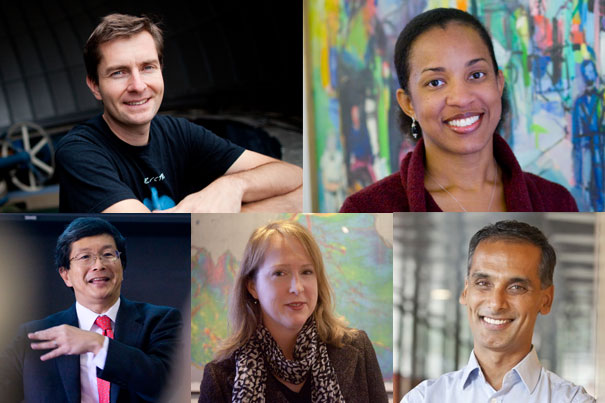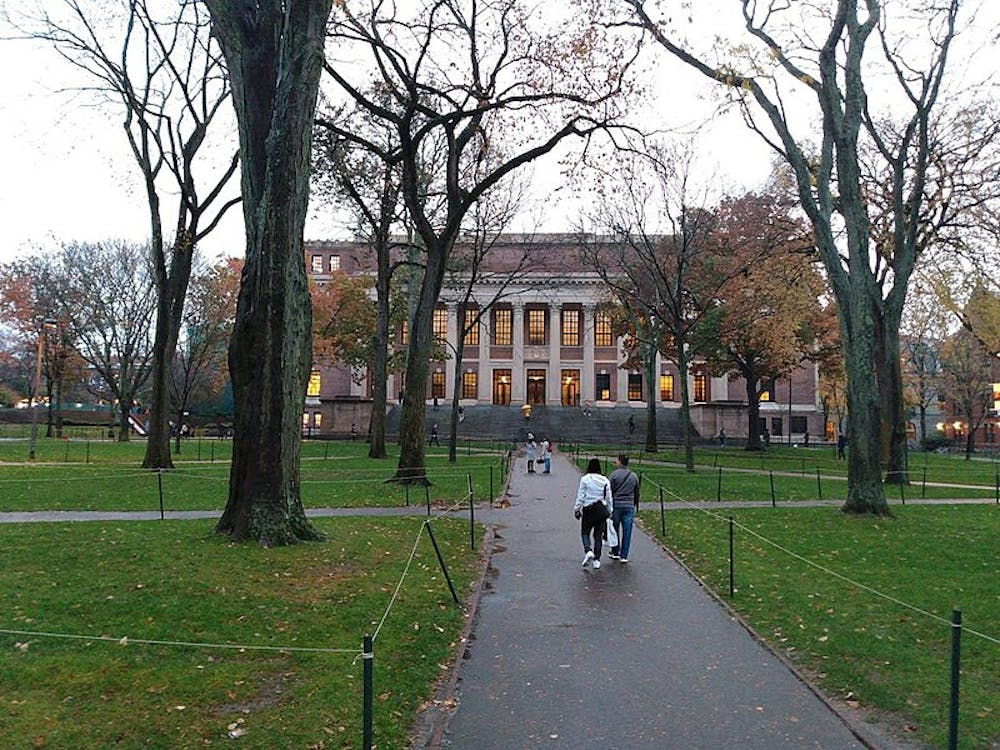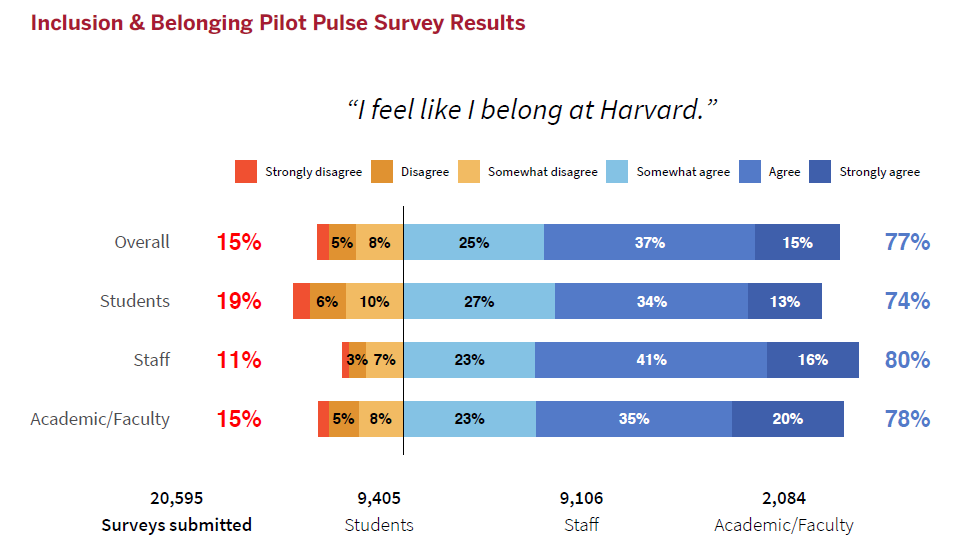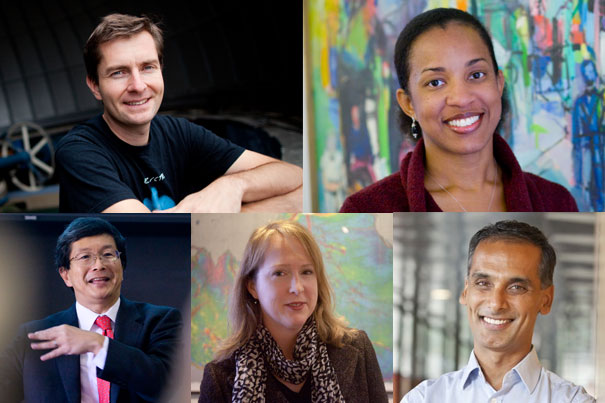Harvard College Professors have recently garnered attention for their remarkable contributions to undergraduate education, illustrating the prestigious institution’s ongoing commitment to teaching excellence. In a notable announcement, five faculty members were awarded the esteemed title of Harvard College Professors in recognition of their exceptional dedication to mentorship and innovative teaching methods. This recognition underscores Harvard faculty recognition as being at the forefront of academic leadership, fostering a dynamic learning environment that encourages students to engage deeply with complex subjects. Award-winning professors at Harvard, like Denis Auroux and Christina Maranci, exemplify the university’s rich tradition of nurturing intellectual curiosity and curiosity through diverse teaching styles. These educators not only inspire their students but also play a crucial role in elevating the standards of academic excellence across the institution.
The recent acknowledgment of distinguished educators at Harvard highlights the institution’s dedication to cultivating outstanding pedagogical practices. Faculty members recognized for their teaching prowess exemplify the innovative methods employed within the Harvard academic community, signaling a strong commitment to undergraduate mentoring. As part of this initiative, award-winning faculty engage students in thought-provoking discussions, applying robust teaching techniques to ensure comprehensive understanding across various disciplines. Conversations surrounding Harvard faculty accolades celebrate the unique approaches that foster an enriching educational atmosphere, allowing students to flourish intellectually. The focus on teaching excellence further emphasizes the institution’s role in shaping the leaders of tomorrow through rigorous academic frameworks.
Harvard College Professors: Celebrating Teaching Excellence
The recent recognition of five esteemed faculty members as Harvard College Professors stands as a testament to the university’s commitment to academic excellence and undergraduate mentorship. Each professor, recognized for their outstanding contributions to teaching, embodies the heart of Harvard’s educational philosophy. Their dedication to fostering an engaging learning environment reflects the core principles of Harvard teaching methods, emphasizing creativity and student engagement. With diverse expertise ranging from high-dimensional geometry to the complexities of modern literature, these professors not only excel in their fields but also inspire the next generation of scholars.
Among the awarded professors, Denis Auroux delights in revealing the intricate connections across various mathematical domains. His classical teaching style, combining rigorous lectures with extensive homework, underlines the importance of persistent knowledge acquisition. Similarly, Christina Maranci, adept at utilizing visual arts to provoke curiosity, enhances student engagement in her cultural studies classroom. Their commitment to teaching excellence, recognized by prestigious teaching excellence awards, exemplifies how Harvard College Professors contribute significantly to the academic landscape, setting high benchmarks for future educators.
The Impact of Harvard Faculty Recognition on Students
Receiving a Harvard College Professorship is more than just a title; it serves as a vital recognition of teaching excellence that deeply impacts students’ academic experiences. Each award-winning professor brings unique methods and perspectives to the classroom, which not only enrich the curriculum but also create vibrant learning communities. For example, Michael Smith’s hands-on approach in his computational thinking classes encourages students to engage directly with real-world problems, fostering a sense of independence and problem-solving skills that extend beyond the classroom.
Additionally, the recognition of faculty members reinforces a culture of academic excellence at Harvard. By acknowledging their contributions, the university enhances its reputation as a leader in higher education, prompting students and prospective faculty to engage with innovative teaching methods. This circle of academic recognition cultivates an environment where students feel motivated to learn and explore complex ideas, ultimately enriching their educational journey and preparing them for future challenges.
Innovative Teaching Methods of Award-Winning Professors at Harvard
The distinguished teaching methods employed by award-winning professors at Harvard reveal a focus on interactivity and engagement. For instance, Karen Thornber’s approach to fostering open discussions within her classes emphasizes the importance of diverse perspectives in understanding challenging topics. By encouraging students to express their views, even on sensitive subjects like mental health or gender-based violence, Thornber cultivates a safe learning environment that nurtures critical thinking and empathy among her students.
On the other hand, Yuhua Wang’s debate-focused teaching style exposes students to multiple viewpoints, reinforcing the idea that learning is an ongoing journey. This method not only stimulates intellectual curiosity but also aids students in understanding the complexities of political discourse. These innovative pedagogical techniques reflect the broader goals of Harvard teaching methods, which strive to develop well-rounded individuals equipped to navigate the complexities of today’s world.
Examining the Diversity of Expertise Among Harvard Faculty
The recent appointments of five Harvard College Professors illustrate the wide array of disciplines and expertise represented within the Harvard faculty. From Denis Auroux’s research in high-dimensional geometry to Christina Maranci’s focus on medieval Armenian art, this diversity enriches the academic environment. Students benefit from a curriculum that is both broad and deep, allowing them to explore interdisciplinary links that enhance their educational experience. This emphasis on diverse scholarly interests aligns with the university’s mission of promoting a well-rounded education.
Moreover, the varied backgrounds of these professors contribute to a richer dialogue in the classroom, exposing students to different cultural and intellectual frameworks. It’s not just about mastering a specific subject; it’s about understanding the interconnectedness of knowledge. This holistic perspective is reflected in the teaching techniques employed by professors such as Michael Smith and Karen Thornber, who integrate ethical considerations and critical discussions into their syllabi, preparing students for a more informed engagement with global issues.
Undergraduate Mentoring: A Core Value at Harvard
Undergraduate mentoring is a central theme in the philosophy of the newly appointed Harvard College Professors. Their commitment to guiding students through their academic journey exemplifies the supportive academic culture that Harvard seeks to promote. Each professor, through their unique approach, emphasizes the importance of mentorship as a fundamental component of teaching. Whether it’s Auroux’s dedication to explaining complex mathematical concepts or Maranci’s immersive use of art to stimulate inquiry, the personalized attention they provide nurtures student growth far beyond mere academic success.
Mentors like Smith and Thornber understand that their role extends beyond the classroom; it includes fostering a community where students feel valued and supported. This mentoring dynamic not only aids in the students’ immediate learning but also prepares them for future challenges, reinforcing Harvard’s commitment to producing graduates who are not only knowledgeable but also compassionate and socially aware. The impact of such mentorship is profound, as it encourages students to pursue their passions and thrive in their future careers.
The Role of Awards in Shaping Faculty Development at Harvard
Awards such as the Harvard College Professorship play an essential role in encouraging faculty development and innovation in teaching. By recognizing excellence in teaching, Harvard not only motivates individual faculty members to enhance their instructional strategies but also fosters a culture of continuous improvement within the academic community. The five faculty members celebrated this year serve as role models, demonstrating how dedication to teaching can lead to higher levels of academic success and student engagement.
Furthermore, such awards affirm the university’s commitment to outstanding teaching as a cornerstone of the Harvard educational experience. With programs designed to support recipients in their research and professional development, these accolades empower professors to further innovate their teaching methodologies, thus continuously raising the bar for educational standards. This cycle of recognition and growth reinforces Harvard’s status as a leader in education and encourages faculty to share their methods and experiences with peers.
The Influence of Harvard Teaching Methods on Student Outcomes
The teaching methods employed by Harvard’s award-winning professors have a significant influence on student outcomes. By integrating real-world applications into the curriculum, such as Michael Smith’s problem-solving framework, students are better equipped to transfer knowledge to practical settings. These innovative teaching styles promote active learning, making student engagement paramount. As a result, students not only excel academically but also develop critical thinking skills that are essential in today’s fast-paced environment.
Moreover, professors like Yuhua Wang, who emphasize intellectual debates and the examination of various viewpoints, equip their students with a robust set of analytical skills. This approach nurtures a generation of students who are not only knowledgeable about their subjects but also capable of engaging in thoughtful discussions on complex issues. As the faculty continues to innovate their teaching methods, the positive impact on student learning and professional readiness grows, solidifying Harvard’s reputation as a premier institution for higher education.
Building Connections Through Interdisciplinary Learning
The appointment of Harvard College Professors serves to highlight the university’s dedication to fostering interdisciplinary learning among its students. Each professor, with their distinct expertise, encourages students to draw connections between seemingly disparate fields. For instance, Auroux’s mathematical insights can inform discussions in the humanities, while Maranci’s art history courses intersect with political discourse in Wang’s political science classes. This interconnected approach not only enriches the learning experience but also prepares students to think holistically in a complex world.
Furthermore, by showcasing the collaborative spirit among professors from various disciplines, Harvard promotes a culture of innovation and creativity. This allows students to approach problems from multiple angles, enhancing their ability to devise comprehensive solutions. The rich tapestry of knowledge shared among professors exemplifies the core Harvard educational ideal—creating informed, empowered citizens ready to tackle the world’s challenges through collaborative effort and intellectual curiosity.
The Future of Teaching Excellence at Harvard
The future of teaching excellence at Harvard appears promising, with newly recognized faculty members leading the charge. Their innovative approaches to education signal a commitment to evolving teaching methods that respond to the changing landscape of knowledge and student needs. By continuing to emphasize mentorship, engagement, and interdisciplinary connections, these professors set a precedent for future educators at the university. As they inspire their students to ask big questions and seek understanding, they contribute to a legacy of excellence that defines Harvard.
Additionally, as Harvard College Professors continue to receive accolades, the institution must remain focused on supporting and cultivating its faculty members. The research funding and opportunities for professional development available to these award recipients not only enhance their own teaching practices but also create ripple effects throughout the Harvard community. As more professors adopt innovative techniques and share their experiences, the collective knowledge within the faculty will undoubtedly drive Harvard forward as a trailblazer in higher education.
Frequently Asked Questions
What is the significance of the Harvard College Professorship for Harvard faculty recognition?
The Harvard College Professorship is a prestigious title awarded to select Harvard faculty members in recognition of their excellence in undergraduate teaching. Established in 1997, this honor highlights the institution’s commitment to exceptional teaching methods, mentorship, and the overall educational experience. Winning professors receive institutional support for research and teaching initiatives, which allows them to continue their impactful work in the classroom.
How do Harvard teaching methods contribute to student engagement among award-winning professors at Harvard?
Harvard teaching methods focus on active engagement, interdisciplinary approaches, and fostering critical thinking. Award-winning professors at Harvard, such as those recognized with the Harvard College Professorship, employ diverse strategies including collaborative problem-solving, hands-on projects, and open discussions. This approach creates an interactive learning environment that encourages students to think critically and engage deeply with the material.
What criteria must Harvard faculty meet to be awarded teaching excellence awards like the Harvard College Professorship?
To be awarded teaching excellence awards such as the Harvard College Professorship, faculty members must demonstrate outstanding contributions to undergraduate mentoring, innovative teaching methods, and a commitment to student engagement. The selection process evaluates their ability to inspire curiosity and facilitate meaningful learning experiences for students, alongside their dedication to ongoing research and academic excellence.
What role does undergraduate mentoring play in the success of Harvard College Professors?
Undergraduate mentoring is a fundamental aspect of the success of Harvard College Professors. These faculty members are recognized not only for their teaching excellence but also for their dedication to nurturing students’ academic and personal growth. By providing guidance, support, and personalized feedback, these professors foster a collaborative and enriching learning environment that enhances the educational experience at Harvard.
How do award-winning professors at Harvard utilize innovative teaching strategies to enhance learning?
Award-winning professors at Harvard often utilize innovative teaching strategies that incorporate technology, interactive case studies, and real-world problem-solving. For instance, courses designed by these professors may include hands-on projects, interdisciplinary discussions, and collaborative learning exercises that encourage students to apply theoretical concepts to practical situations, thereby enriching their academic journey.
What impact does the Harvard College Professorship have on faculty research support?
The Harvard College Professorship significantly impacts faculty research support by offering recipients access to various resources such as research funds, summer salary, or a semester of paid leave. This financial and institutional support enables professors to focus on their scholarly research while maintaining their commitment to teaching excellence, ultimately enhancing the academic reputation of Harvard College.
In what ways are Harvard teaching methods tailored to suit diverse student perspectives?
Harvard teaching methods are tailored to accommodate diverse student perspectives through inclusive practices and flexible course designs. Faculty members, especially those awarded prestigious titles like the Harvard College Professorship, actively encourage open dialogue, critical discussions, and the exploration of multiple viewpoints, creating a classroom environment where all students feel valued and supported in sharing their insights.
| Faculty Member | Field | Notable Teaching Methodology | Research Interests |
|---|---|---|---|
| Denis Auroux | Mathematics (High-Dimensional Geometry) | Classical lectures, extensive homework, old-fashioned chalkboard usage | Symplectic geometry, low-dimensional topology, mirror symmetry |
| Christina Maranci | Armenian Studies (Art and Visual Culture) | Engaging students through images to foster curiosity and ask questions | Pre-modern Armenian art and architecture |
| Michael Smith | Engineering and Applied Sciences | Hands-on engagement, active problem-solving | Computational thinking, ethical implications of technology |
| Karen Thornber | Literature and East Asian Languages and Civilizations | Creating a welcoming environment for diverse perspectives | Cultural history, gender justice, health humanities |
| Yuhua Wang | Political Science (Chinese Politics) | Debate format to explore multiple perspectives | State-building in China, comparative political development |
Summary
Harvard College Professors are known for their significant contributions to undergraduate education, and this year’s recipients exemplify excellence across diverse disciplines. The awarding of the Harvard College Professorship highlights the importance of innovative teaching methodologies in fostering student engagement and critical thinking. Each honoree, from Auroux’s inventive mathematics courses to Wang’s dynamic political discussions, employs unique strategies to inspire students, demonstrating the vital role of higher education in shaping inquiry and intellectual growth.




